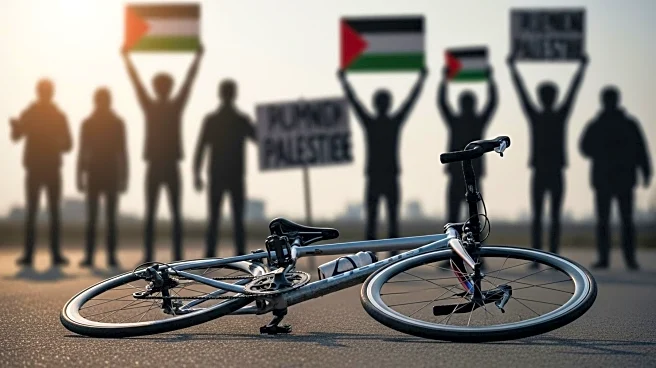What's Happening?
The 16th stage of the Spanish Vuelta was abruptly shortened after pro-Palestinian protesters blocked the road near the finish line. This marks the second instance of such disruptions during the three-week Grand Tour race in Spain. Race organizers decided to take the times of riders with 8 kilometers remaining, awarding Egan Bernal the stage win while Jonas Vingegaard maintained the overall lead. The protest involved hundreds of individuals gathering approximately 3 kilometers from the finish line, prompting officials to adjust the stage results.
Why It's Important?
The interruption of the Spanish Vuelta highlights the intersection of sports and political activism, showcasing how global events can be influenced by social movements. The protests draw attention to the Palestinian cause, potentially impacting public perception and media coverage. For the cycling community, these disruptions can affect race strategies and outcomes, influencing team dynamics and individual performances. The incident underscores the vulnerability of large-scale sporting events to external factors, emphasizing the need for contingency planning.
What's Next?
Race organizers and teams may need to reassess security measures and logistical plans to prevent further disruptions. The ongoing protests could lead to increased dialogue between event officials and activist groups, seeking resolutions that respect both sporting and political expressions. Stakeholders in the cycling world might consider engaging with social issues more proactively, balancing the integrity of the sport with the realities of global activism.










